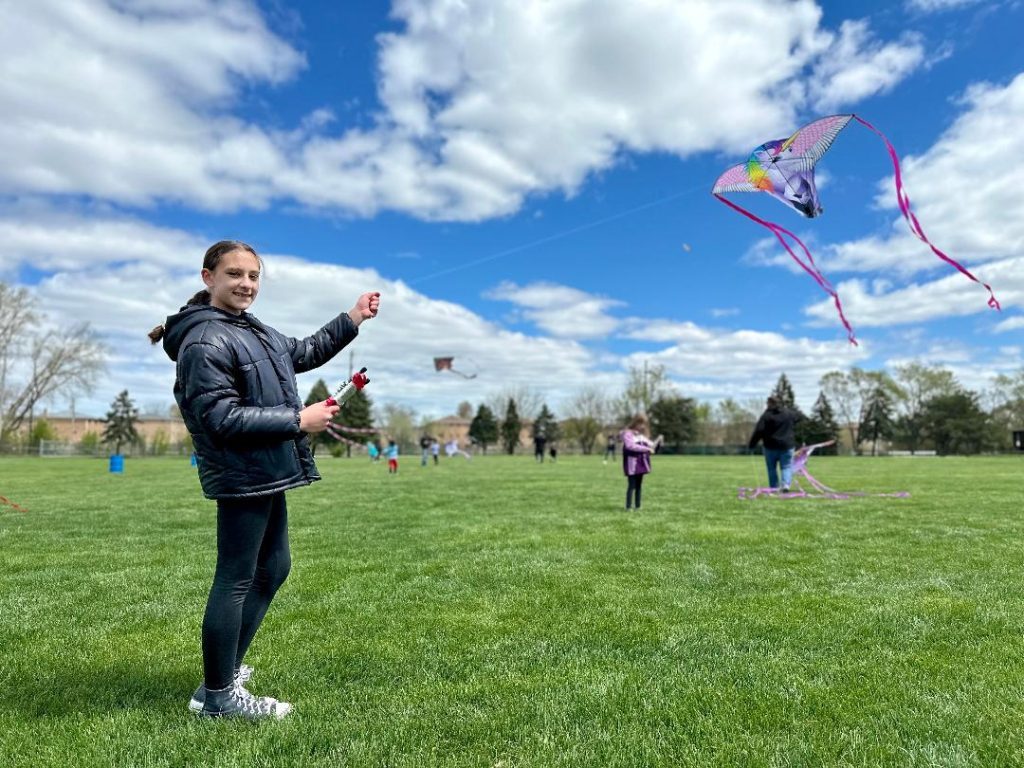
CAPITOL RECAP: Passage of congressional maps caps busy fall session
By CAPITOL NEWS ILLINOIS
SPRINGFIELD – Illinois lawmakers gave final approval in the early hours of Friday morning to a new congressional redistricting plan that divides the state into 17 districts, one fewer than it currently has due to its loss of population since the 2010 U.S. Census.
It was the fourth draft plan that legislative Democrats had proposed over the previous two weeks, and it was introduced to the public after 7 p.m.
Like earlier versions, it collapses two southern Illinois districts into a single district while carving up much of downstate Illinois into a number of oddly-shaped districts that put cities as far apart as East St. Louis and Champaign into one district, with Bloomington and Rockford linked in another.
“This will be the most gerrymandered map in the country,” Sen. Don DeWitte, R-St. Charles, said during floor debate. “And this process will be used as the poster child for why politicians should never be allowed to draw their own maps.”
But Senate President Don Harmon, D-Oak Park, who carried the bill on the floor of the Senate, defended the maps, saying, “I’m here to stand behind the work we’ve done.”
Most of the legislative wrangling over the past two weeks, however, centered on Chicago and the collar counties, and pressure from within the Democratic caucus to create a second largely-Latino district because of the rapid population growth within that community over the past 10 years.
Illinois’ congressional delegation is currently divided 13-5 in favor of Democrats. Independent analysts, including the nonpartisan Princeton Gerrymandering Project, have estimated that earlier iterations of the plan would give Democrats as many as 14 seats, and Republicans as few as three.
If that holds true, it could have national implications because Democratic congressional leaders are looking to states like Illinois and New York to help offset losses they expect to take in states where Republicans control the redistricting process.
The redistricting plan passed the Senate on a straight party line vote, 41-18. It passed the House nearly on a party line vote, 71-43, losing two Democratic votes.
Rep. Kelly Cassidy, D-Chicago, did not vote on the remap proposal. The lone Democratic “no” vote came from Rep. Angelica Guerrero-Cuellar, who was appointed to the 22nd state legislative district in Chicago to replace former House Speaker Michael Madigan, who resigned earlier this year.
The draft of the maps that eventually passed Thursday moved 3rd District incumbent Rep. Marie Newman, D-La Grange, into a district with Rep. Jesus “Chuy” Garcia, D-Chicago, into a reshaped 4th District. She announced Friday that she will run in the 6th District, however, as members of Congress do not have to live in the districts they represent.
Unlike the Wednesday map, the latest version left Democratic Rep Sean Casten, of Downers Grove, uncontested in the 6th District primary in terms of residece. Newman was drawn into that district in the Wednesday version, but was moved into Garcia’s district in Thursday’s map.
In southern Illinois, which saw the most dramatic population declines since the 2010 census, Republican Reps. Mike Bost, of Murphysboro, and Mary Miller, of Oakland, would be paired together in a new 12th District.
In central Illinois, Republican Reps. Darin LaHood, of Peoria, and Adam Kinzinger, of Channahon, would face each other in a 16th District primary. Kinzinger announced Friday he would not run for reelection, while LaHood said he plans to run.
* * *
GAMBLING EXPANSION: Betting on in-state college sports could become legal with the stroke of the governor’s pen after lawmakers in the General Assembly approved an amendment to the state’s sports betting law Thursday.
The amendment to House Bill 3136 passed both the House and Senate with vast bipartisan support, reaching the threshold necessary for it to take effect immediately once signed by the governor.
The measure would be a major expansion to the sports betting bill which Pritzker helped usher through the General Assembly during his first year in office in 2019. Upon his signature, a business with a sports betting license would legally be allowed to take a bet on an Illinois college team, provided the bet is made at a betting facility, rather than online.
Only “Tier 1” wagers would be accepted on in-state teams, meaning the wager is “determined solely by the final score or final outcome” of a sporting event, and it must have been filed before the start of the game. No bets would be allowed on an individual’s performance in an in-state game.
For now, in-state collegiate betting would be a pilot program set for repeal on July 1, 2023, unless the General Assembly extends it.
The bill also adds fire protection districts to the list of entities that can receive a charitable raffle license, and Wintrust Arena, where the WNBA champion Chicago Sky play their home games, would be eligible to apply for a sports betting license, just like the state’s other pro sports facilities.
The bill caps an annual fee that non-home rule municipalities can charge on video gaming terminals at $250, up from $25, and would prohibit municipalities from taxing video gambling machines or bets placed on the machines.
The bill allows for municipalities that had enacted such a tax before Nov. 1 to continue to charge it, but they would be prohibited from increasing or expanding it, according to the legislation.
The bill would also allow for online registration for sports gambling applications beginning March 5, 2022.
The bill also allows fraternal organizations to apply for gambling machine licenses, even if the municipality in which they reside has a local ban on them. Those provisions would not apply, however, to such facilities in Chicago and Cook County.
The bill also makes changes to the horse racing industry, loosening the requirements for the “Illinois Conceived and Foaled” racing program, such as allowing stallions owned by non-Illinois breeders to bring their horses to Illinois to breed with Illinois mares. It also provides that semen from an Illinois stallion may be transported outside of the state.
* * *
HEALTH CARE CONSCIENCE: The Illinois Senate joined the House on Thursday, Oct. 28, in approving a change to the Health Care Right of Conscience Act that was requested by the governor and attorney general, putting it one signature away from becoming law.
The HCRC Act currently prohibits discrimination against anyone for their “conscientious refusal to receive, obtain, accept, perform, assist, counsel, suggest, recommend, refer or participate in any way in any particular form of health care services contrary to his or her conscience.”
The bill passed Thursday would add language stating that it is not a violation of the law for an employer “to take any measures or impose any requirements …intended to prevent contraction or transmission of COVID-19.”
Its supporters believe the measure will clarify the legislature’s intent as a number of court cases continue through the system in which Illinoisans are challenging COVID-19 vaccine or testing requirements by citing protections afforded in the HCRC Act. It’s needed to close a legal loophole allowing people to flout those mandates, they argued.
Critics of the bill, however, argued the language is overly broad and that the Health Care Right of Conscience Act actually was intended to protect an individual’s right to make his or her own health care decisions.
It passed the Senate 31-24 just before 11 p.m. Thursday with no Republican votes. Because the bill did not receive a three-fifths majority in both chambers, its effective date is set for June 1, 2022, per a provision of the state constitution pertaining to bills passed after May 31.
Senate President Don Harmon, D-Oak Park, argued Thursday night that the existing law should not be applicable to mitigation measures aimed at slowing a deadly pandemic. Those with health care or religious concerns regarding mandate compliance can still access federal exemptions, he said in floor debate.
“The Health Care Right of Conscience Act was adopted in 1977 and was intended, I think fairly clearly, to provide protection to doctors, nurses, pharmacists, other health care professionals who, based on their own conscience, did not want to participate in certain reproductive health care services or prescriptions,” he said.
“That law, broadly drafted, is being construed today and litigation is essentially a ’I choose not to follow these rules and as justification for that I will cite the Health Care Right of Conscience Act.’ I don’t believe that is at all consistent with the original intent,” he added.
Sen. Sue Rezin, R-Morris, said the HCRC Act, when initially passed, “created a line that stopped the government from forcing its citizens to receive medical procedures and services that went against their sincerely held beliefs.”
“Now, the government’s trying to erase that line,” she said.
* * *
CHILD VACCINATION: The governor’s Monday, Oct. 25, news conference focused on the state’s effort to prepare for the approval of the Pfizer-BioNTech COVID-19 vaccine for children aged 5-11. The U.S. Centers for Disease Control and Prevention advisory committee is scheduled to meet Nov. 2 and 3 to consider approval.
Illinois Department of Public Health Director Dr. Ngozi Ezike said the department has begun planning events for the following week. There are 1.1 million Illinoisans in the age 5-11 range that will become eligible for vaccination should the CDC approve it.
The governor’s office said more than 2,200 providers statewide are already enrolled to provide the vaccine to children, and the state expects to receive 306,000 doses, with another 73,000 going to the city of Chicago and 100,000 doses to pharmacies.
The outreach effort will also go directly to schools, Pritzker said.
“We will be reaching out to approximately 750 public school districts that teach elementary aged students to offer them the opportunity to host parent-approved clinics right on school grounds,” he said. “We will have a team ready to go at the request of any district.”
Parents hoping to get their children vaccinated by the holiday season should call their pediatricians as soon as possible, the governor said.
As of Monday, about 63.5 percent of the state’s population over 12 years of age was vaccinated.
For more on how to obtain a vaccine, visit vaccines.gov.
* * *
DAY CARE VACCINES: Gov. JB Pritzker announced an executive order Friday, Oct. 22, that will add day care personnel to the list of professions that must either be vaccinated against COVID-19 or submit to weekly testing.
The governor’s office said it expects the order to affect 55,000 individuals in the state, although many of them may have already received a vaccine.
Children under 12 are not yet eligible to receive any of the approved vaccines in the U.S., although Pfizer has asked federal regulators to approve its vaccines for children aged 5 to 11. Children 12 years of age and older are currently eligible for that vaccine.
Day care professionals will be required to receive their first dose by Dec. 3, and their second by Jan. 3. Those not fully vaccinated by Dec. 3 will have to submit to weekly COVID-19 testing until they are fully vaccinated, according to the governor’s office.
There are 2,872 day care centers in Illinois that are licensed through the Department of Children and Family Services, the governor’s office said in a news release.
Since August, the governor’s office has mandated the same vaccine or testing requirements for health care professionals, teachers and staff at Pre-K-12 schools, higher education personnel and students, and a number of state workers.
* * *
STATE EMPLOYEE VACCINES: Gov. JB Pritzker has mandated that certain groups of state workers, K-12 school employees, higher education students and personnel, health care workers and others either receive the COVID-19 vaccine or submit to weekly testing. Last week, he added day care personnel to the list.
On Monday, Oct. 25, Pritzker announced nearly 10,000 state employees are now covered under union agreements mandating vaccination.
The state and part of its largest public employee union – American Federation of State, County and Municipal Employees Council 31, or AFSCME – announced the latest agreement, which covers about 7,800 employees of congregate facilities at the Department of Human Services and Department of Veterans’ Affairs.
“Our most vulnerable residents, such as veterans who can’t live on their own and adults living with developmental disabilities, have no choice but to live among workers at these facilities,” Pritzker said at a news conference Monday. “… They deserve the safest possible homes that we can provide, and that includes the protection of a vaccinated community.”
They join the Teamsters, VR-704 union, the Illinois Nurses Association, the Illinois Federation of Public Employees and Illinois Trade Unions as those covered in agreements with the state. All must be fully vaccinated as of Nov. 30 with the first dose received by Tuesday.
The latest agreement does not cover all of AFSCME’s workers that are otherwise covered under the mandates, as negotiations between the state and the Department of Corrections and Department of Juvenile Justice have reached an impasse. The state and the union will submit to arbitration regarding the 10,300 security employees in those agencies.
For an additional 1,900 non-security employees at those two departments, the governor’s office said the state plans to impose the same requirements as the rest of the unions.
Per those agreements, employees will receive an additional personal day, and may be compensated at their regular pay for the time taken to receive the vaccine if none is available off work hours. Vaccinated employees may also receive paid time off if they contract COVID-19.
The governor’s vaccine mandates were first issued in late August amid a surge of the COVID-19 delta variant that has proven about twice as transmissible as the first wave of the virus.
On Aug. 26, when the governor issued the order, the rolling case positivity rate for COVID-19 tests was 5.4 percent.
Virus transmission rates have ticked downward since that time, and the case positivity rate sat at 1.9 percent as of Monday. That number is still well above the mid-June lows of 0.6 percent.
Capitol News Illinois is a nonprofit, nonpartisan news service covering state government and distributed to more than 400 newspapers statewide. It is funded primarily by the Illinois Press Foundation and the Robert R. McCormick Foundation.
Local News
Sorry, we couldn't find any posts. Please try a different search.
Neighbors

Donate teddy bears to our local police
Spread the love. Peggy Zabicki Your correspondent in West Lawn 3633 W. 60th Place • (773) 504-9327 . Have you ever seen the 1955 movie The Night of the Hunter? The children in this movie show such bravery and acceptance in what life has thrown at them. They have to deal with unimaginable events and sadness. …

Boy Scouts collecting tattered flags for disposal
Spread the love. By Mary Stanek Your correspondent in Archer Heights and West Elsdon 3808 W. 57th Place • (773) 517-7796 . Goodbye April, hello May. Our American Flag, the symbol of our country, should always be treated with respect. But after bearing Chicago’s brutal winters and hot blazing summers along with being in the…
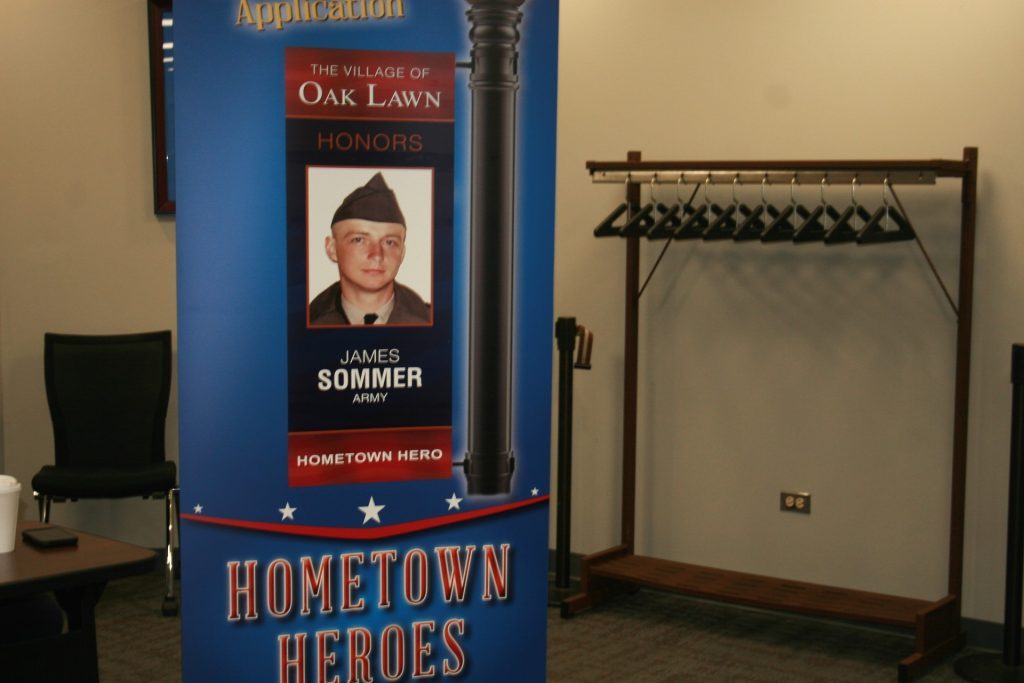
Oak Lawn trustee says village needs state grocery tax
Spread the loveBy Joe Boyle An Oak Lawn trustee said that Gov. J.B. Pritzker’s proposal to eliminate the state’s grocery tax will be costly for the village. Trustee William “Bud” Stalker (5th), accompanied by Mayor Terry Vorderer, recently returned from a fact-finding trip to Springfield where they learned more about the governor’s proposal to eliminate…
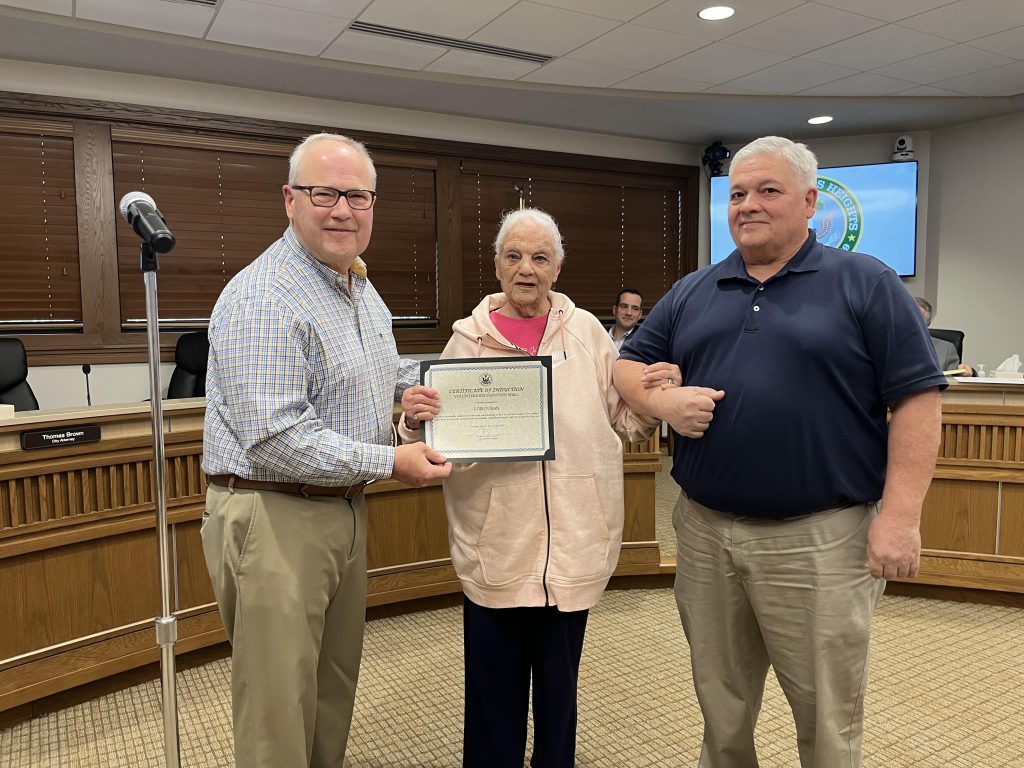
Palos Heights recognizes volunteers
Spread the loveBy Nuha Abdessalam Palos Heights handed out awards last week recognizing the services provided by volunteers through the years. The proclamations, which were read aloud during the city council meeting April 16, were a testament to the city’s volunteers and were handed out as part of Volunteer Recognition Week. Volunteers were cited for…
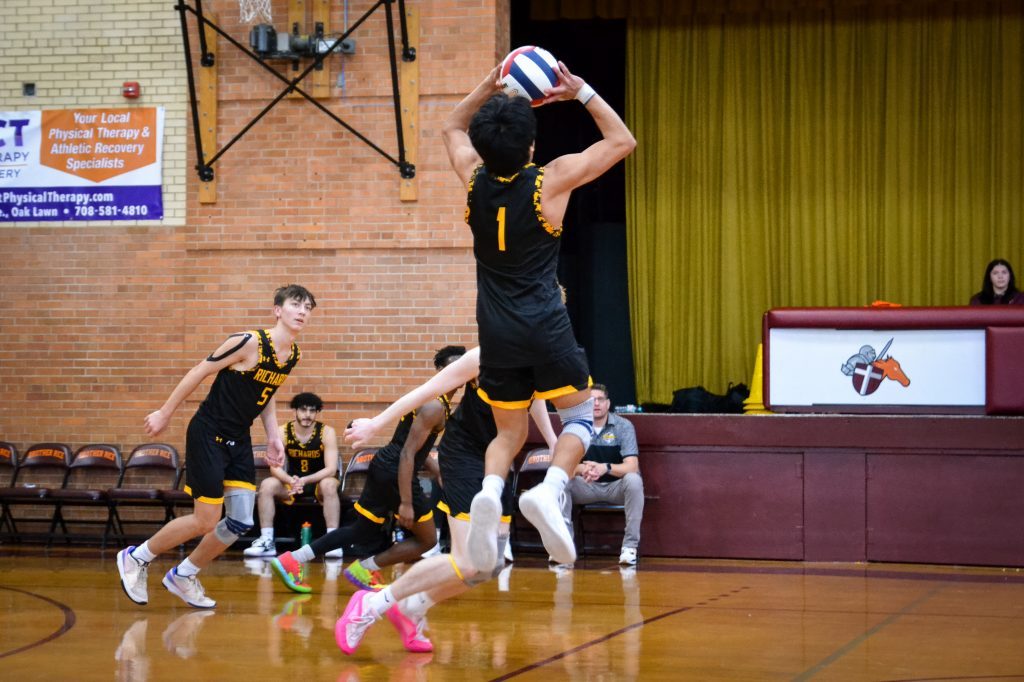
Boys Volleyball | Richards weathering struggles after run of success
Spread the loveBy Xavier Sanchez Correspondent After a tough weekend at the Smack Attack tournament, Richards got back into the win column with a two-set victory over Eisenhower in a South Suburban Red match. The Bulldogs made quick work of the Cardinals, winning 25-16, 25-15 on April 23 in Oak Lawn to snap a five-match…

SD218 puts on annual Arts Extravaganza
Spread the loveBy Kelly White The arts have become a major portion of the curriculum Community High School District 218. Showcasing those many talents, the Friends of CHSD 218’s Education Foundation proudly hosted its 15th annual Arts Extravaganza on April 5 at Eisenhower High School in Blue Island. “The Arts Extravaganza is a great event…
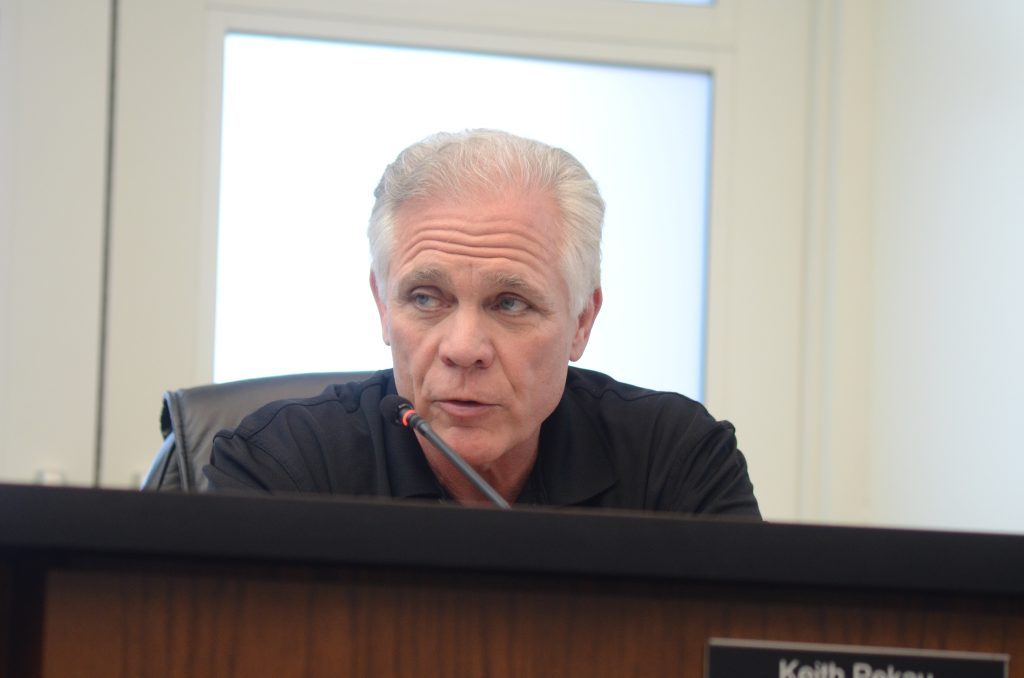
Gaming licenses to be tougher to get in Orland Park
Spread the loveBy Jeff Vorva It’s going to take longer to receive gaming licenses in Orland Park. The village board passed an ordinance April 15 that would allow table service businesses open at least 36 consecutive months to apply rather than the previous 18 months, and extended the probationary period to 18 months instead of…
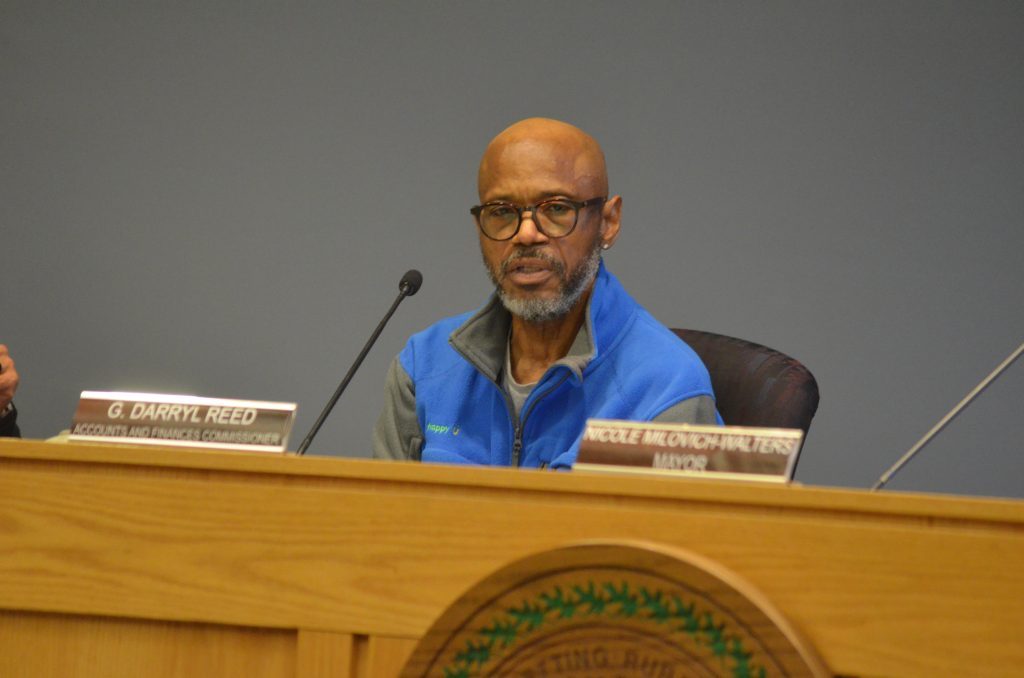
Palos Park passes $16 million budget
Spread the loveBy Jeff Vorva The Palos Park Village Council approved the 2024-25 budget, which totals a little more than $16.3 million at the April 22 village council meeting. According to village documents, it represented an increase of a shade over $603,000 from last year. The village is expecting $13.4 million in revenue and $1.86…
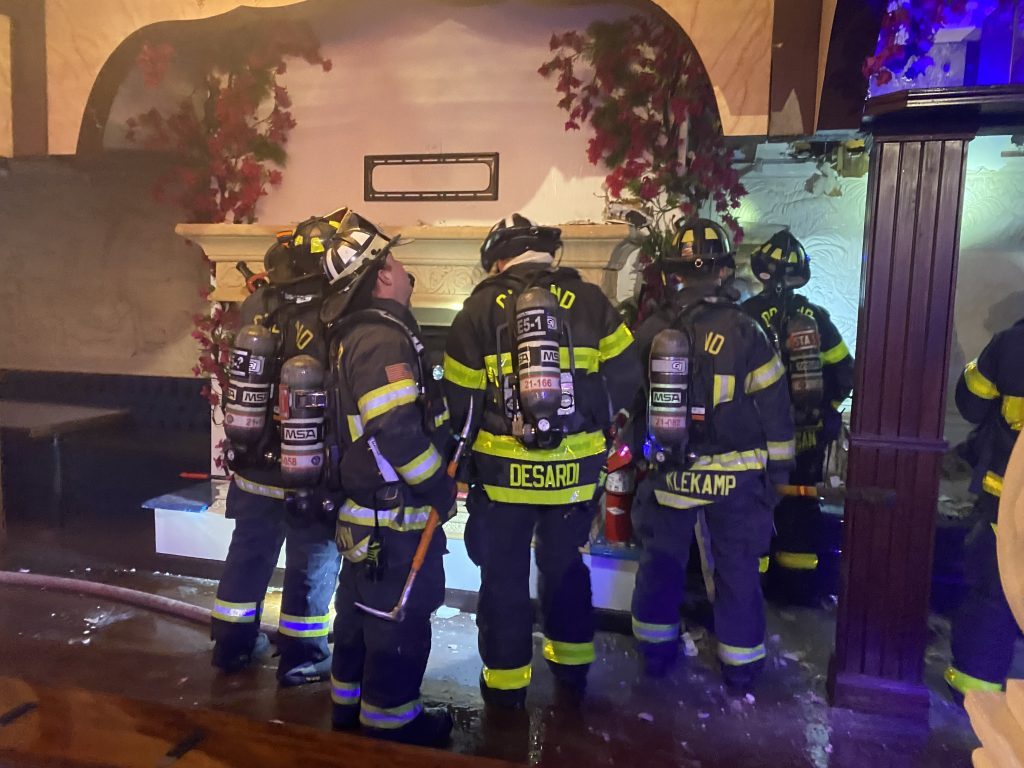
Fire damages Al Bahaar Restaurant in Orland Park
Spread the loveFrom staff reports Orland Fire Protection District firefighters responded to a fire Monday evening at the Al Bahaar Restaurant, 39 Orland Square Dr. At first, restaurant owners suspected the fire alarm was triggered by a malfunction, but as firefighters inspected the restaurant to reset the fire alarm, they detected a burning smell. “What…






